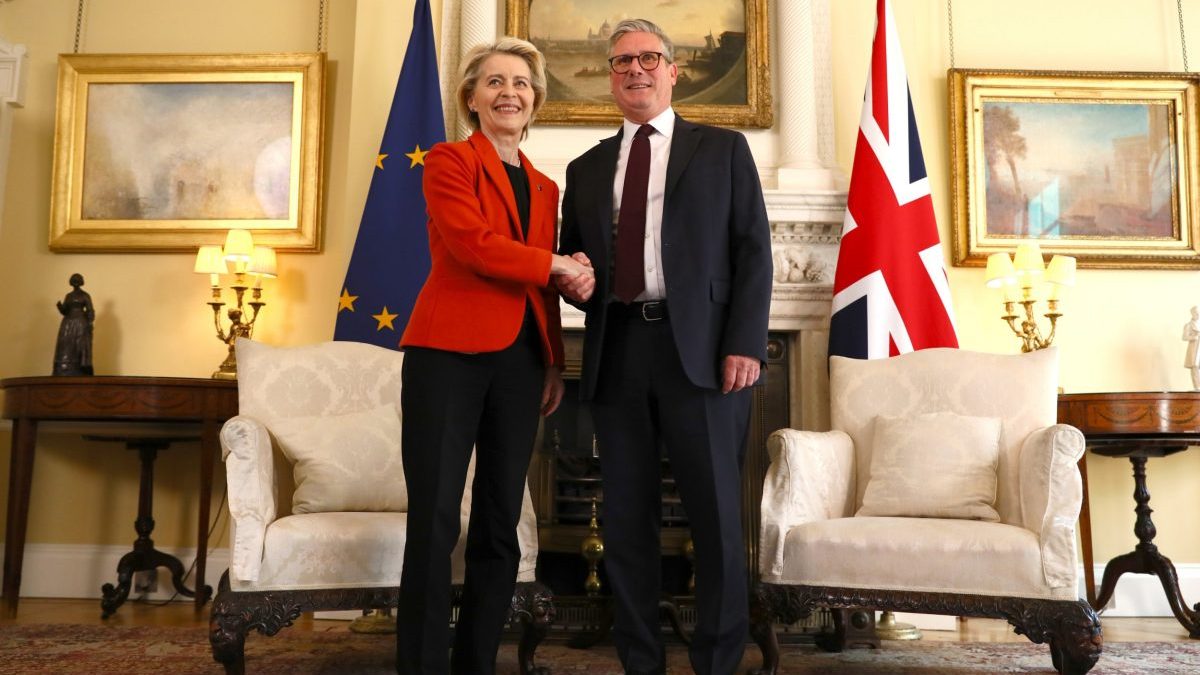Letter shared exclusively with The i Paper shows Britain is concerned about live animal exports, gene editing and foie gras
The UK has signalled it will look to protect Brexit freedoms to allow the gene editing of crops and maintain higher animal welfare standards despite committing to align with EU law in a food and drink agreement.
Ministers have previously acknowledged Britain will need exemptions from alignment with EU law in the food deal – the flagship trade policy in Sir Keir Starmer’s Brexit reset – but refused to discuss details of what carve-outs it will seek.
But a private Government letter, shared exclusively with The i Paper, reveals more explicit details about the UK’s negotiating strategy with talks looming this autumn ahead of a self-imposed 2027 deadline to get the agreement.
New FeatureIn ShortQuick Stories. Same trusted journalism.
The letter from the Department for Environment, Food and Rural Affairs (Defra) said “there are a number of areas where we need to retain our own rules”, making clear “the importance of being able to set high animal welfare standards, support public health and support the use of new and innovative technologies”.
It suggests the UK is set to try and preserve British laws passed after leaving EU regulations through Brexit to allow the gene editing of crops, as well as a ban on live animal exports.
Ministers have repeatedly refused to say whether the Government would follow through on a pre-election Labour pledge to ban foie gras imports, although this could also be included in any carve-out allowing the UK to “set” its own animal welfare standards.
EU deal to boost the economy
On Tuesday Rachel Reeves again blamed the terms of Brexit for Britain’s struggling economy.
“We also know .. that things like austerity, the cuts to capital spending and Brexit have had a bigger impact on our economy than even was projected back then,” the Chancellor said in a speech in Birmingham.
“That’s why we are unashamedly rebuilding our relations with the European Union.”
The food and drink deal, technically known as Sanitary and Phytosanitary (SPS) Agreement, is designed to boost the economy and ease the cost of living by making cross-border trade on food and drink easier between the UK and EU.
It will see Britain align with Brussels regulations to reduce checks on trade, but the UK has made clear it wants exemptions.
It is believed that the EU is most likely to agree on live animal exports, while gene editing may be more tricky as some member states are resistant to the practise. France is likely to try and block any British attempt to gain the freedom to ban foie gras imports.
An ‘encouraging signal’
Animal Equality UK, which obtained and shared the letter with The i Paper, said the letter was an “encouraging signal” but stressed that “animals need action, not words”.
The charity says this must include maintaining a ban on live animal exports and following through on a commitment to ban foie gras imports through a formal carve-out on animal welfare similar to a deal Switzerland struck with the EU this year.
Abigail Penny, Animal Equality UK executive director, said: “It is promising that the Government recognises the need for the UK to retain its autonomy and retain control over its animal welfare standards.
“A strong carve-out would ensure that the UK sets the rules and has the freedom to block products that fall short of our ethical standards, while upholding laws our Parliament has already passed.
“Products passing through UK borders should reflect our values – it’s as simple as that.”
She added: “We cannot risk trade deals undermining hard-won protections such as the ban on live exports or delaying long-promised reforms.”
‘Worrying’ UK has not set out its aims clearly
Experts however cast doubt on whether the UK would be able to achieve its aims.
Former UK trade official David Henig said: “The UK Government is not in a strong position to negotiate exemptions to alignment with EU SPS rules, with the expectation on both sides of a quick outcome based on UK acceptance of the EU rule book.
“A Swiss exemption on animal welfare was based on a clause in their common understanding that is not in the UK equivalent. What is particularly important is that the UK is clear in its detailed negotiating aims, and this letter is worrying in suggesting that is not yet the case.”
A Government spokesman said: “We are focused on delivering an SPS deal that could add up to £5.1bn a year to our economy by cutting costs and reducing red tape for British producers and retailers.”
